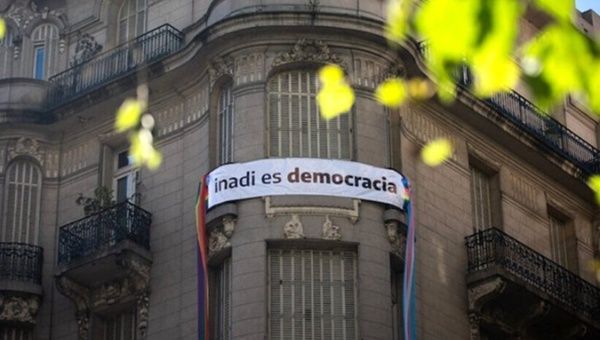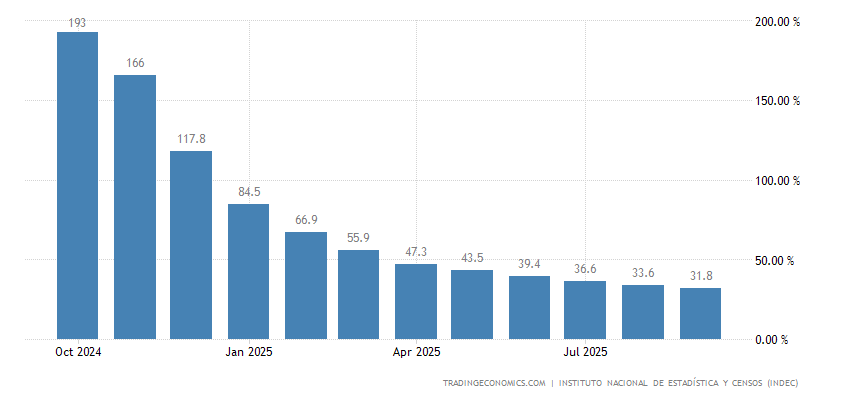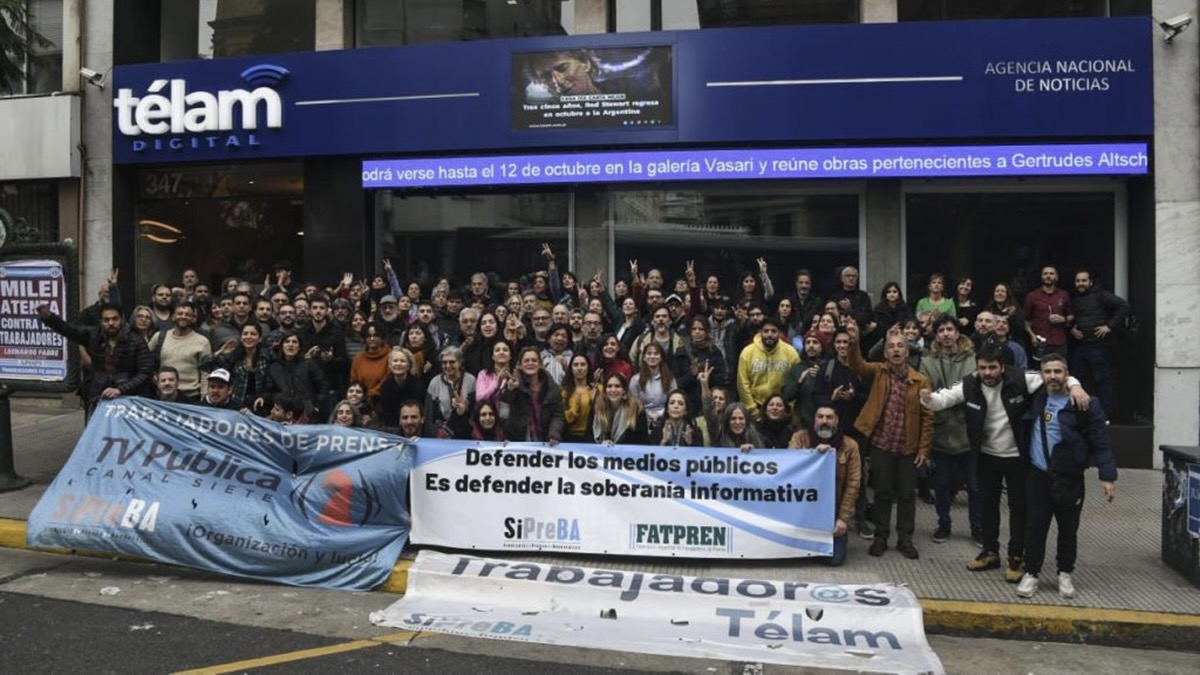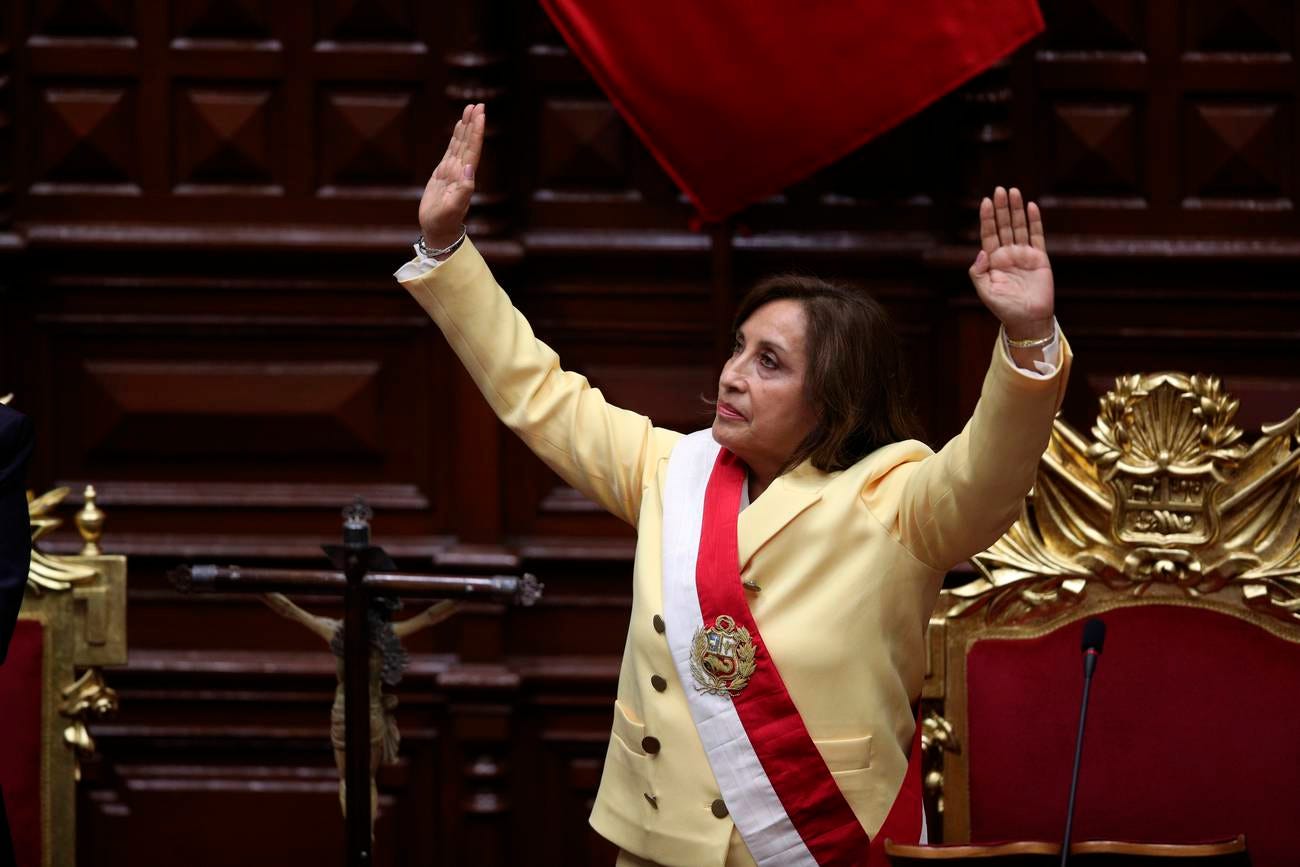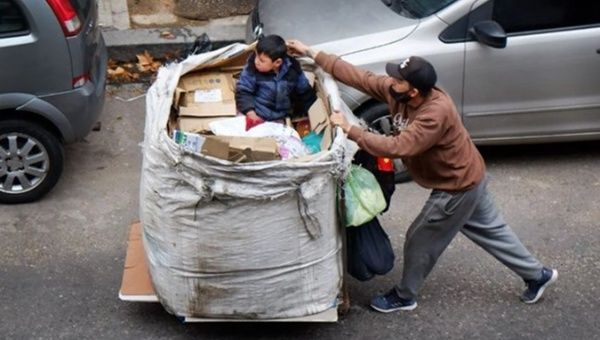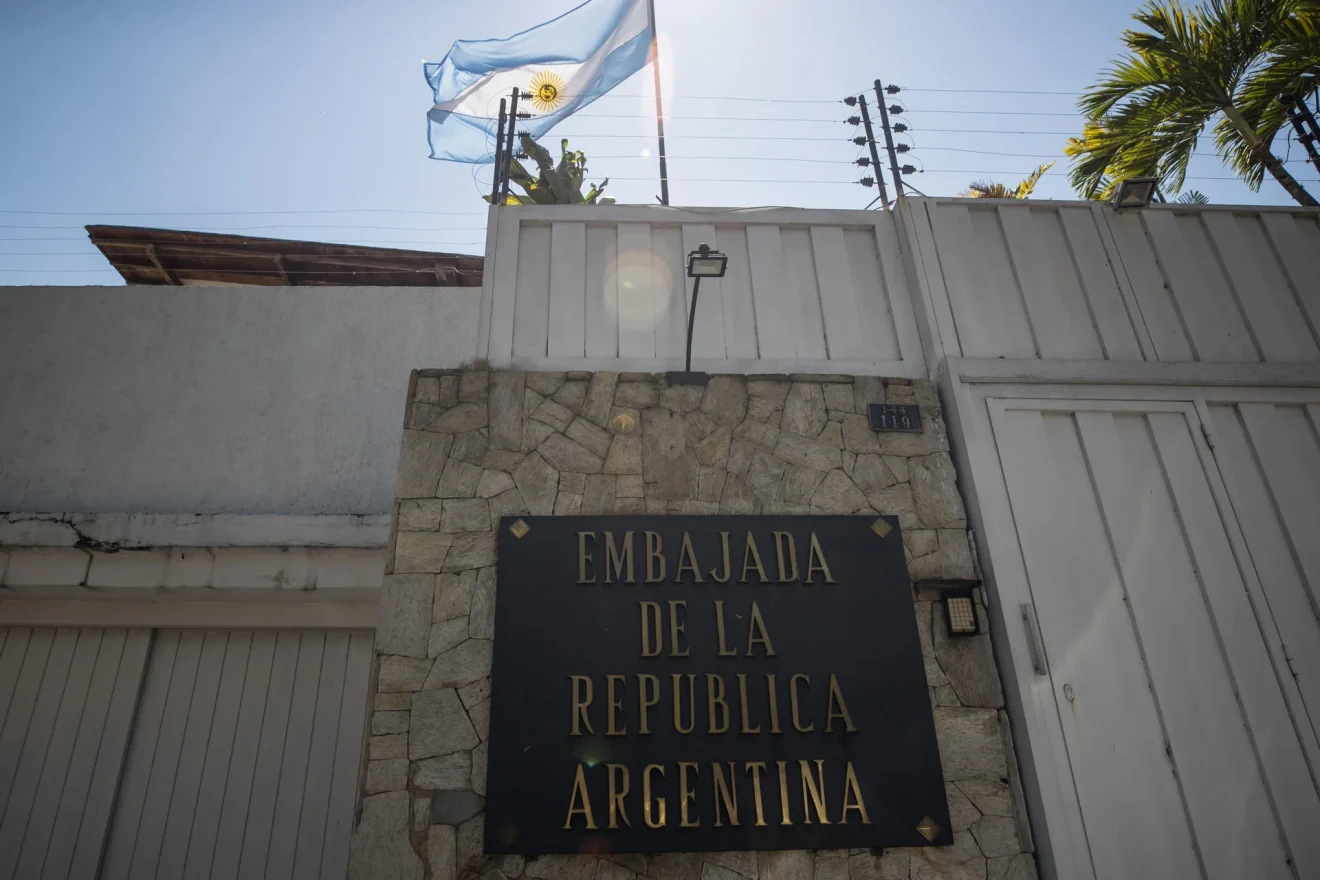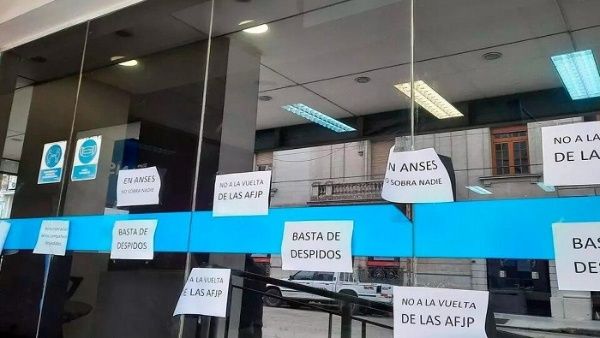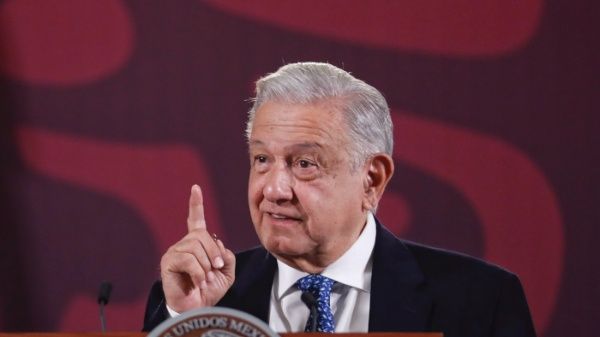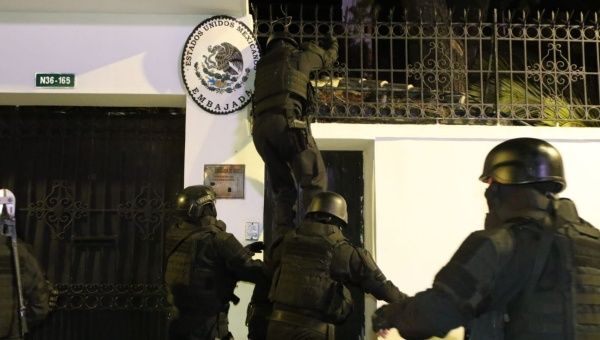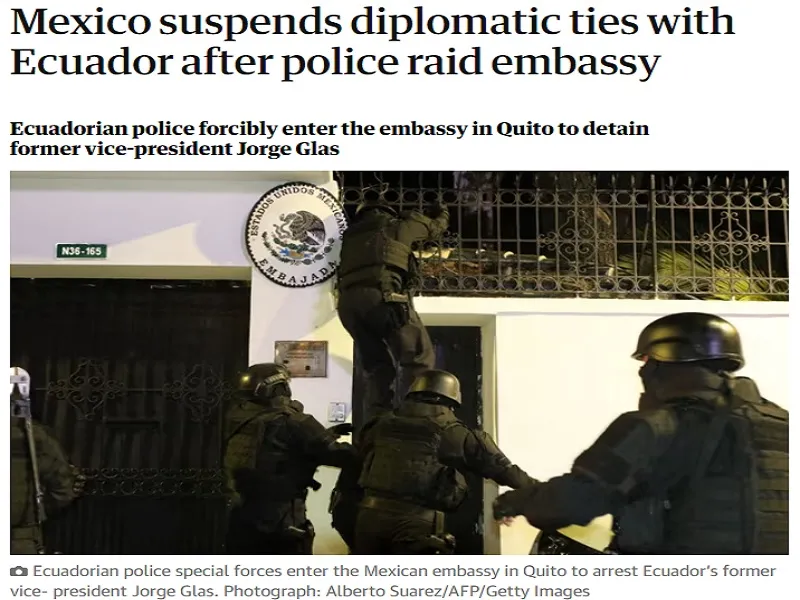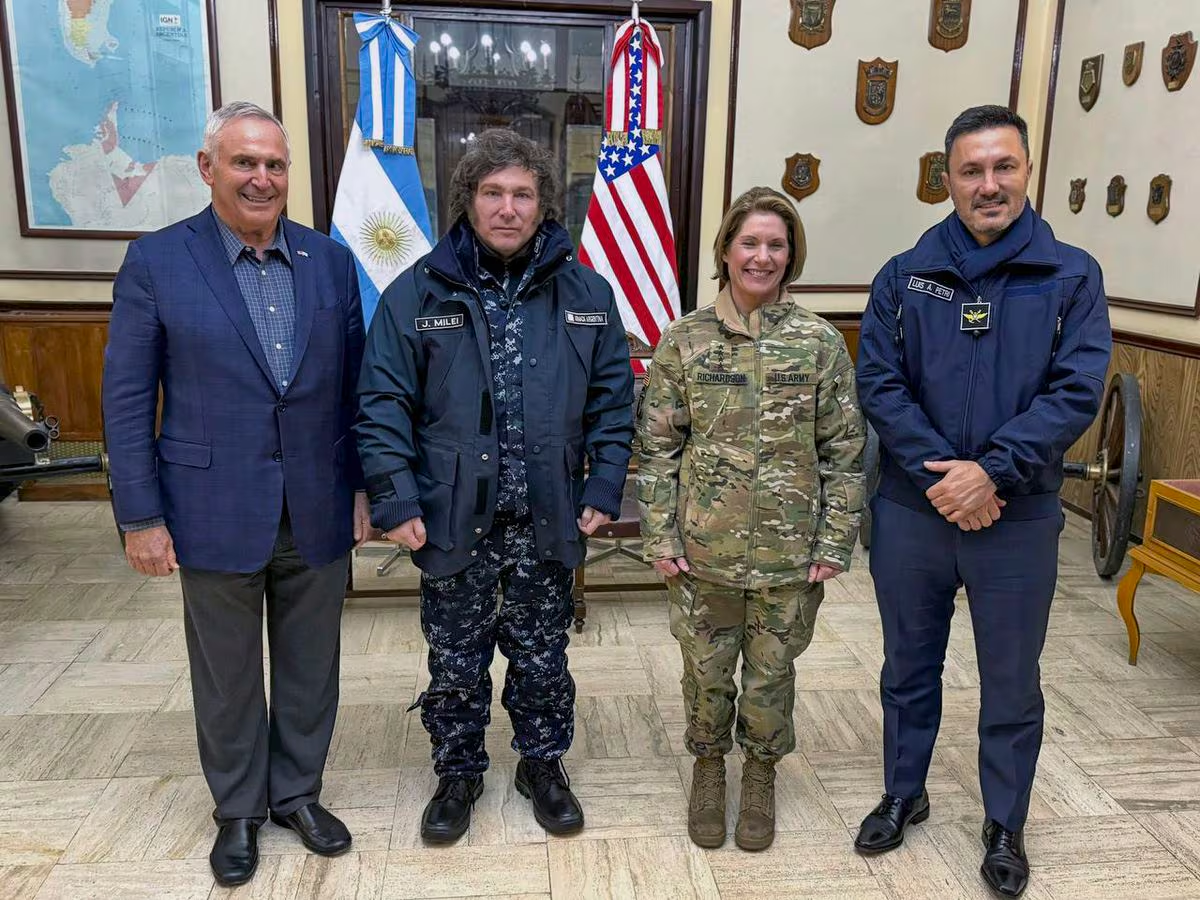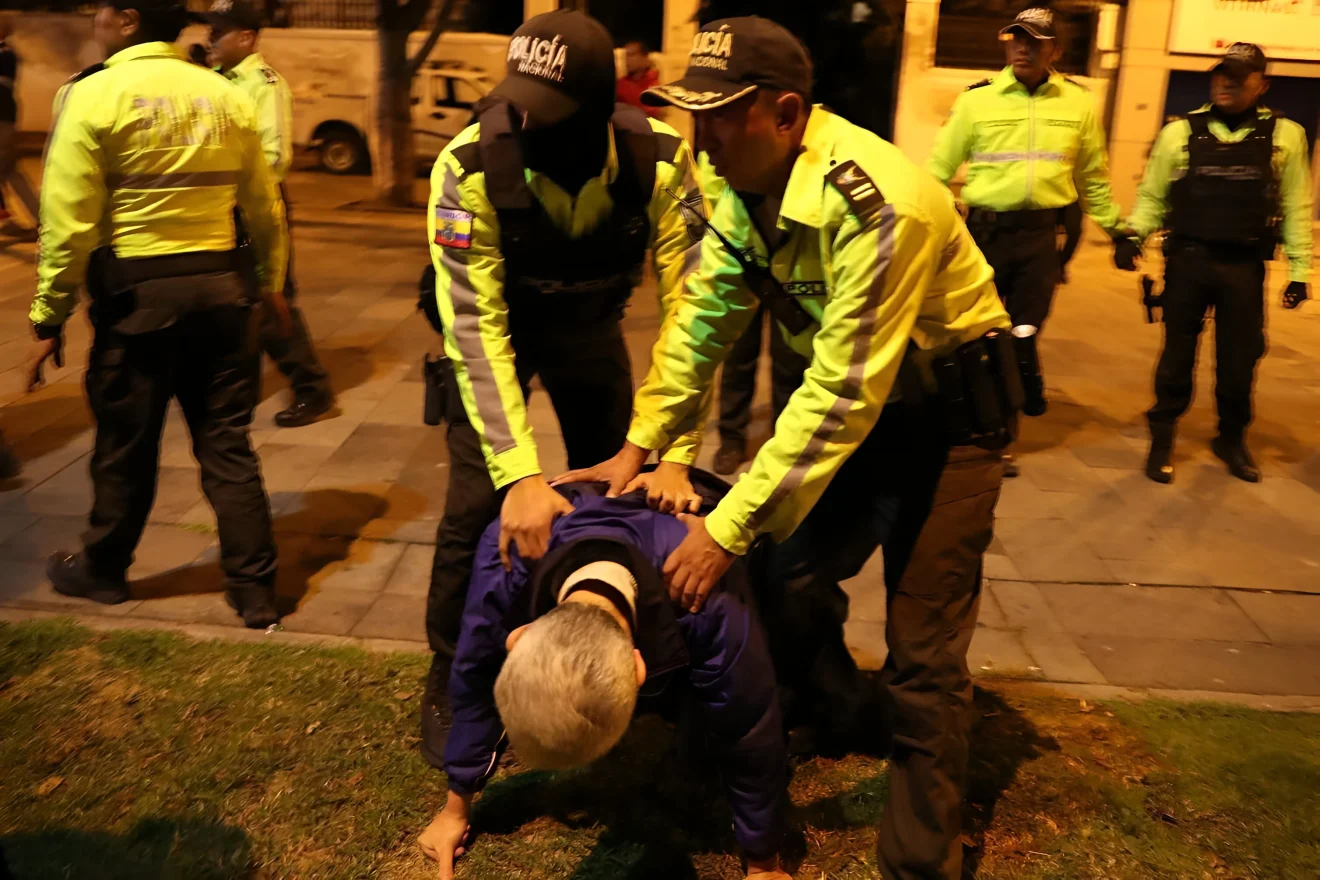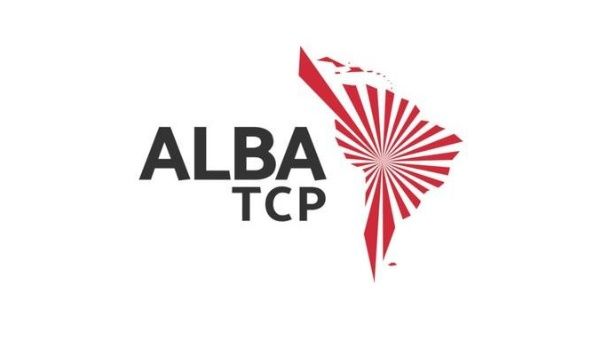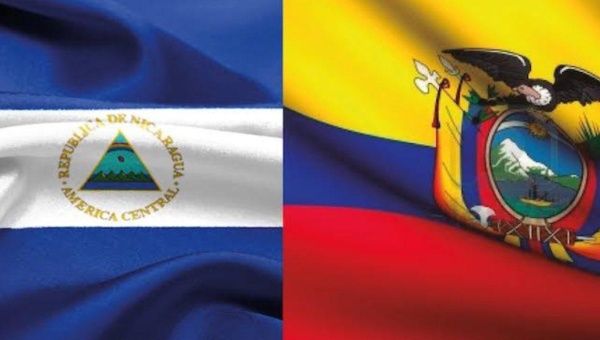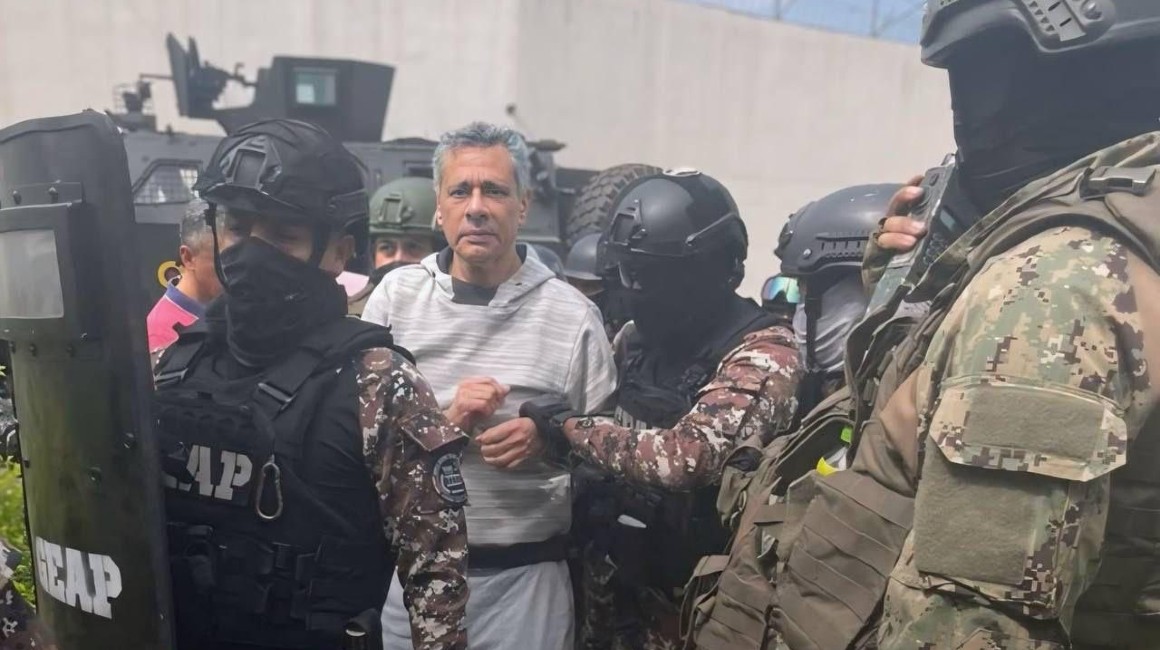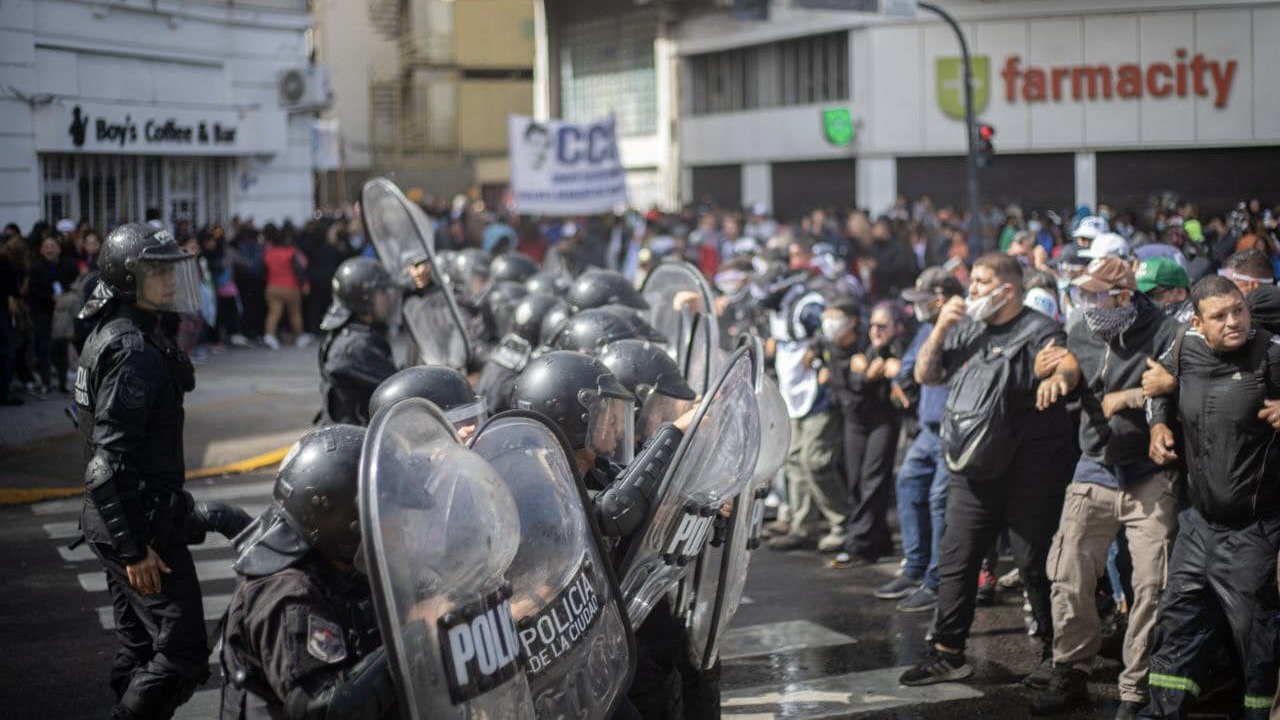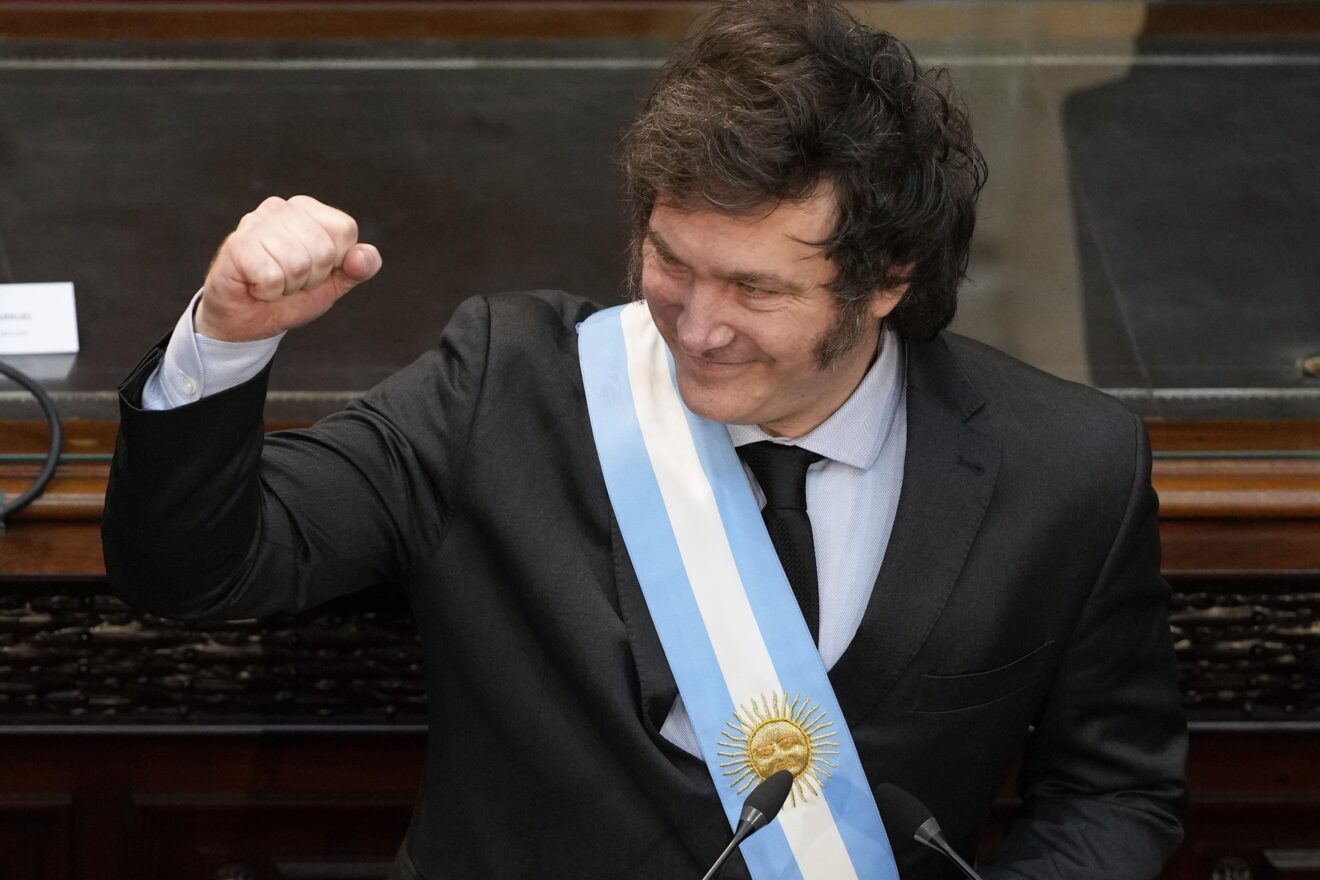Feb 8, 2024 , 9:55 am .

Javier Milei crying before the Wailing Wall (Photo: AFP)
The ultraliberal party led by President Javier Milei, La Libertad Avanza (LLA), has had to retreat by withdrawing the Omnibus bill in its entirety from the Argentine Congress, a fact that returns it to the starting point of the legislative process.
The lack of consensus on crucial aspects, such as authorizing the president to make decisions in economic, financial, security, energy tariffs and administrative areas without having to go through Congress, has been decisive in this situation for Milei, whose ambitions to implement Structural reforms are frustrated.
The vote on the specific articles this Tuesday represented a setback for the ruling bloc, which had celebrated the general approval of the project the previous week. During the twelve votes taken, LLA suffered six defeats.
Just before the vote on the privatization issue, and faced with the imminent rejection, the ruling party requested that the law be returned to committees, which implies restarting the process from scratch.
The bill sought to mark a strongly neoliberal turn based on limiting state intervention. The megadecree contemplates the repeal of 366 laws that, if approved, would grant Milei broad powers by establishing a "state of public emergency." This exceptional measure could be extended until December 31, 2025, with the possibility of being extended for two more years, which would cover the entire presidential term and grant Milei legislative powers.
The Argentine president's three-day trip to the Zionist State of Israel was marred by this news. During his stay, after announcing the intention to move the Argentine embassy to Jerusalem , Milei learned of the withdrawal of the bill and reacted by declaring war on the opposition on social networks.
He reiterated that everything was caused by the "caste" that opposed the change, and called the deputies who voted against it as "criminals who ruin the country . " Previously, the presidency's office had published a list with the names of legislators who voted for and against the neoliberal proposal. Milei commented on it as the list of "loyalists and traitors," and then recommended a publication where you could "map some of the impoverished caste names to their faces."
Between ignorance and pedantry
But at least, as reported by the Argentine media, it was the government itself, promoted by LLA, that led to the defeat of the law.
In an article on the subject, Anfibia Magazine pointed out the lack of strategy of the ruling party when trying to pass laws, and highlighted that basic measures such as negotiating with possible allies, allowing modifications or seducing those who could support them were not taken. Instead, the government chose to disregard legislative work and push the law through, without being clear about the necessary support.
Page 12 portrayed him in a similar way :
The negotiations had not reached a successful conclusion, the ruling party turned a deaf ear to the claims and it was not until the friendly opposition scrapped the first five articles that the alarms began to sound. Finally, the privatization chapter arrived, the numbers were not there, and LLA decided that it preferred to throw away the entire last month of parliamentary work, rather than end the day with a half-victory.
In any case, the disaster that represented the return of the Omnibus Law to the committees of the Chamber of Deputies of Argentina reveals a plot that is difficult to catalog, which could be oscillating between:
*The lack of knowledge of the legislative process contemplated in the Internal Regulations of Deputies and that was evident in the first statements issued by both the Minister of the Interior, Guillermo Francos, and those of the head of the La Libertad Avanza bloc in the Chamber of Deputies, Oscar Zago , where they hinted that, since the law had generally been approved, returning it to committees did not imply starting the process again, in clear ignorance of article 155 of the regulations and
*The deep contempt for the parliamentary exercise that involves negotiating with those who would be willing to support the bill; This became evident in the apathy to build a bridge with some sectors of the opposition and especially with the governors who were not able to be seduced, making evident the lack of interlocutors/negotiators of La Libertad Avanza.
This last statement is not banal, they wanted to build the image of Javier Milei with overwhelming leadership and popularity and reality is responsible for dismantling it every day. Both the results of the first presidential round and the formation of the legislative branch demonstrate that in order to govern, President Milei must establish a negotiation strategy that allows him to build majorities in order to move forward with his political project; and after the “own goal” of the Omnibus Law, such a strategy is far from being seen as a possibility.
https://misionverdad.com/globalistan/es ... ey-omnibus
Google Translator
******
Exposed: US DEA Used Criminals to Spy On, Destabilize Venezuela, Mexico, Bolivia
FEBRUARY 7, 2024
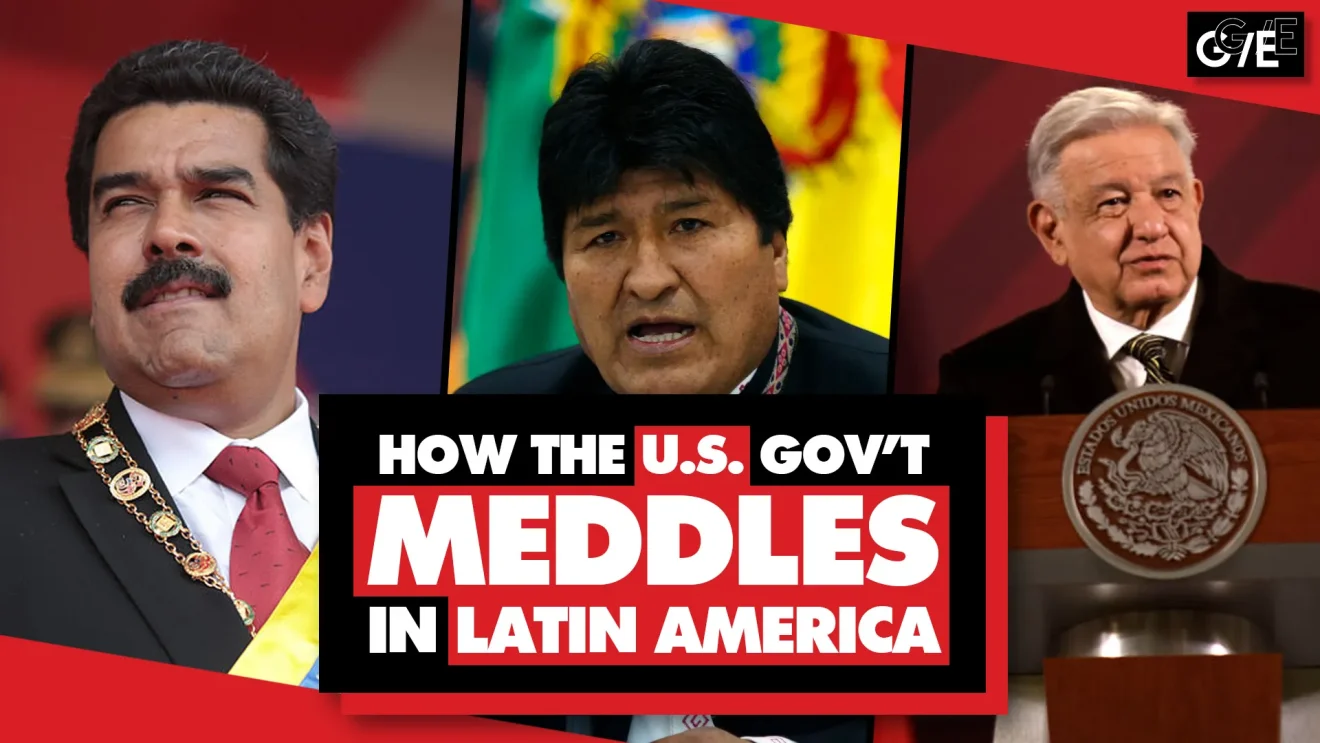
Compilation image of Nicholas Maduro (Left), Evo Morales (Center) and Andrés Manuel López Obrador (Right). Photo: Geopolitical Economy Report.
By Ben Norton – Feb 5, 2024
Numerous reports in major media outlets have documented how the US government has used the Drug Enforcement Administration (DEA) in order to spy on and try to destabilize left-wing governments in Latin America.
DEA meddling schemes have targeted Venezuela’s President Nicolás Maduro, Bolivia’s former President Evo Morales, and Mexico’s President Andrés Manuel López Obrador.
In these scandals, the DEA has collaborated with known criminals, including drug traffickers and money launderers, to launch sting operations against leftist politicians.
DEA schemes in Venezuela
The Associated Press revealed this February that the DEA “sent undercover operatives into Venezuela to surreptitiously record and build drug-trafficking cases against the country’s leadership”.
Known as Operation Money Badger, it was launched in 2013 with the goal of ensnaring senior Venezuelan officials in corruption scandals.
The AP reported that the DEA “authorized otherwise illicit wire transfers through U.S.-based front companies and bank accounts”. It noted that “Colombian drug traffickers” were involved.
As its informants, the DEA recruited criminals. The AP wrote (emphasis added):
The DEA Miami Field Division’s Group 10 recruited a dream informant: a professional money launderer accused of fleecing $800 million from Venezuela’s foreign currency system through a fraudulent import scheme.
The informant’s illicit activity in Venezuela positioned him to help the DEA collect evidence against the chief target of the unilateral operation: Jose Vielma, an early acolyte of the late Hugo Chávez who in two decades of service to the Bolivarian revolution cycled through a number of top jobs, including trade minister and the head of Venezuela’s IRS.
Venezuela’s sovereign, democratically elected government had expelled the DEA, so this covert operation was a clear violation of Venezuela’s sovereignty. And the US government itself acknowledged that these activities violated international law, the AP reported.
The AP quoted a former DEA official who served in Venezuela who boasted, “We don’t like to say it publicly but we are, in fact, the police of the world”.
Operation Money Badger started under the Barack Obama administration, but was expanded under President Donald Trump.
The Trump administration launched a coup attempt in 2019, pressuring countries around the world to recognize US-appointed coup leader Juan Guaidó as the so-called “interim president” of Venezuela, despite the fact that he had never participated in a presidential election.
The US government imposed several rounds of crushing sanctions and an economic embargo on Venezuela, which devastated the country’s oil industry and starved Caracas of the export revenue it needed to fund social programs and the foreign currency it needed to stabilize its national currency, fueling hyper-inflation.

In 2020, the US government backed an attempted invasion of Venezuela. The attack, known as Operation Gideon, was led by two former US Army special operations commandos.
One of the top Venezuelan coup-plotters involved in the failed invasion later revealed that the putschists had been in touch with the CIA and other US government agencies.
The botched invasion was overseen by a US private security company called Silvercorp, which was based in Florida and run by a former U.S. Army Green Beret commando, Jordan Goudreau.
Goudreau had provided security for Donald Trump’s rallies. And he met with US government officials at Trump’s golf course in Doral, Florida to discuss the plans to invade Venezuela.
For his part, Trump boasted that he tried to “take over” Venezuela and pillage its massive oil reserves.
At a Republican Party convention in 2023, Trump stated, “When I left, Venezuela was ready to collapse. We would have taken it over; we would have gotten to all that oil; it would have been right next door”.
Trump’s neoconservative national security advisor, John Bolton, likewise bragged in a 2022 interview on CNN that he “helped plan coups d’etat” in Venezuela and “other places”.
Meanwhile, US-backed coup leader Juan Guaidó and his accomplices were widely accused of extreme corruption.
Even Guaidó’s erstwhile supporters in Venezuela’s right-wing opposition turned against him, accusing Guaidó and his allies of spending huge sums of humanitarian aid money on expensive nightclubs, hotels, cars, clothes, food, and alcohol.
Guaidó’s coup-plotting allies also used public assets that the US, UK, and EU stole from the Venezuelan government and people in order to pay their enormous legal fees.
DEA schemes in Bolivia
Venezuela was by no means the only country in Latin America targeted by the DEA for destabilization.
In 2008, Bolivia’s democratically elected socialist president, Evo Morales, expelled the DEA.
Morales was the first ever Indigenous president of a country where the majority of the population is Indigenous.
He accused DEA agents of spying on his government and collaborating with violent right-wing opposition groups.
“There were DEA agents that were doing political espionage… financing criminal groups so that they could act against authorities, even the president”, Morales said, in comments reported by Reuters.
At the time, US officials rejected Morales’ accusations as a crazy conspiracy theory.
But in 2015, the Huffington Post revealed that DEA agents had in fact been spying on Morales and the Bolivian government, as part of an undercover sting called “Operation Naked King”.
To justify its meddling, the DEA misleadingly accused Morales of supporting the drug trade, because he legalized the production of coca, a plant that can be used for non-drug purposes, such as in teas and medicines.
Many poor farmers, especially in the Indigenous-majority areas that Morales was from and represented, relied on producing coca.
Vice News reported in 2016 that, after Morales legalized coca, “there is less violence, less cocaine, and even less coca in Bolivia than there was before”.
Morales blasted the DEA’s double standards, noting that it purchased 45,000 kilos of coca in 1992.
“During our government, the model of the fight against drug trafficking was applauded and recognized by the UN and EU”, Morales tweeted in 2020.
“Now, they submit themselves to the CIA and DEA to benefit the geopolitical interests of the US”, he added, condemning the then government of unelected far-right leader Jeanine Áñez of “submission” and “corruption”.
In 2019, Morales was overthrown in a violent coup d’etat. With US support, an unelected far-right regime came to power, which was led by Christian extremists who systematically discriminated against Bolivia’s Indigenous majority.
Bolivia’s US-backed coup regime also sought to privatize the South American nation’s massive lithium reserves. Bolivia is one of the world’s top producers of lithium, a crucial material needed for battery production.
When a Twitter user criticized billionaire Tesla CEO Elon Musk in 2020 over his support for the putsch in Bolivia, the oligarch responded, “We will coup whoever we want! Deal with it”.
Elon Musk Bolivia coup whoever we want
In 2021, Morales stated that, “For the CIA and DEA the so-called ‘war against drugs’ is an excuse to attack progressive and anti-imperialist governments. It is a screen to cover their geopolitical interests”.
The former Bolivian leader, who was spied on and targeted in a sting operation by the DEA, pointed to a similar scandal that had been exposed in Mexico.
DEA schemes in Mexico
Over decades, the DEA has repeatedly been implicated in illegal espionage operations in sovereign Mexican territory, targeting government officials and politicians, particularly those on the left.
This January, the US media outlet ProPublica published a thinly sourced article alleging, without concrete evidence, that allies of Mexico’s leading left-wing politician Andrés Manuel López Obrador (AMLO) took money from drug cartels to try to help him win the 2006 presidential election.
The report acknowledged, “The investigation did not establish whether López Obrador sanctioned or even knew of the traffickers’ reported donations”.
AMLO later won the 2018 election, and has since been one of the most popular presidents on Earth, governing for five years with consistent support from around two-thirds of the Mexican population, according to the US-based firm Morning Consult.
AMLO blasted the ProPublica article as “vile defamation” and “propaganda”, and he suggested that it sought to influence Mexico’s upcoming 2024 election. The candidate Claudia Sheinbaum, from AMLO’s left-wing Morena party, is leading in all of the polls, by a huge margin.
The ProPublica article offered no tangible evidence, just insinuations trying to link AMLO to organized crime. But it did disclose that, in 2011, on the eve of Mexico’s 2012 elections, “DEA agents proposed a sting in which they would offer $5 million in supposed drug money to operatives working on López Obrador’s second presidential campaign”.
That is to say, the DEA was blatantly meddling in Mexico’s internal politics to harm the left-wing candidate, as a presidential election soon approached.
ProPublica also admitted that US “Justice Department officials closed the investigation, in part over concerns that even a successful prosecution would be viewed by Mexicans as egregious American meddling in their politics”.
Mexico-based US journalist Kurt Hackbarth noted that the “only real revelation in this week’s ProPublica piece is the DEA’s plot to frame the AMLO campaign in the runup to the 2012 election”.
“Unlike Russiagate, here’s a bonafide attempt to intervene in a foreign election, freely admitted to”, he added.
In a follow-up Twitter thread, Hackbarth emphasized, “Let’s take a second and appreciate the implications of this. At the precise time Felipe Calderón’s Security Minister Genero García Luna was colluding with the Sinaloa Cartel – which the DEA saw and heard no evil about – they were instead focused on this stupid sting op on AMLO”.
Calderón, a conservative former president from Mexico’s right-wing PAN party, was a close US ally, so faced no serious consequences for his documented links to drug cartels.
AMLO, on the other hand, is an independent left-wing leader who has routinely criticized the US for violating his country’s sovereignty.
In 2023, the Mexican president sent the Joe Biden administration a letter formally condemning US “interventionism” in his country. Specifically, AMLO noted that USAID was funding right-wing opposition groups.
In another speech that year, AMLO condemned State Department criticism as hypocritical “meddling” and stated, “There is more democracy today in Mexico than in the United States… because here the people govern, and there the oligarchy govern”.
AMLO likewise held a huge rally in which he denounced Republicans Congress members who have called for the US military to invade their southern neighbor. While honoring the Mexican state’s nationalization of the country’s large oil and lithium reserves, AMLO declared, “Mexico is an independent and free country, not a US colony or protectorate!”
https://orinocotribune.com/exposed-us-d ... o-bolivia/
******
Ecuador Pays A High Price, In Bananas and Carnations, for Giving Russian-Made Weapons to US (and By Extension, Ukraine)
Posted on February 9, 2024 by Nick Corbishley
The impact is likely to be significant for a country that is already reeling from an economic crisis and whose government is in the process of unleashing yet another round of IMF-approved austerity.
Almost exactly a month ago, Ecuador’s US-born and -raised, son-of-a-billionaire president, Daniel Noboa, announced his controversial decision to deliver outdated weapons of Russian origin to the United States. To justify the decision, Noboa insists the equipment is no longer war material, but rather “scrap metal.” As such, giving it to the US does not not violate any end user certificates signed with Russia, as Russia claims, since those agreements only apply to “usable” military hardware.
The Russian government is, of course, having none of it. Russia’s ambassador to Ecuador, Vladimir Sprinchan, warned at the time of Noboa’s announcement that Moscow would consider the delivery of Russian weapons to the US as an “unfriendly move.” As has now been confirmed by Washington, the Russian-made weapons will soon be on their way (if they are not already) to Ukraine where they will be used to kill Russian troops.
Moscow has decided to retaliate on an economic front. And its main targets are two of Ecuador’s most important export sectors: bananas and flowers.
Bananas, Carnations and Humpback Flies
On February 5, the Russian Consumer Protection and Phyto-Sanitary Inspectorate requested the suspension of import authorisations for five Ecuadorian banana exporters after allegedly detecting an infestation of humpback flies in a shipment of bananas from the Andean nation. Today (Feb 9), the Phytosanitary Contol Service applied the same measure to certain flowers coming from Ecuador, including carnations. For the sake of appearances, Moscow insists the restrictions are purely for health reasons and have nothing to do with the weapons deal.
Their impact, however, is likely to be significant for a country that is already reeling from an economic crisis and whose cash-starved, debt-bloated government is in the process of unleashing yet another round of IMF-approved austerity in the hopes of securing further loans and credit lines from the Fund. Two days ago, Ecuador’s congress refused to sign off on a proposed law to finance the war on the drug cartels by increasing VAT, from 12% to 15%. Noboa has proposed instead to gradually increase the tax rate to 15%, “depending on the conditions of public finances and balances of payments.”
For Ecuador’s embattled economy, bananas and carnations matter, a lot. The country is the world’s largest exporter of bananas and Russia is its second biggest customer after the European Union. “Russia is an extremely important market for our country’s banana producers and exporters,” said the Association of Banana Exporters of Ecuador (AEBE) in a press release:
[]“It is the final destination of 21% of all banana exports. 1.46 million crates [of the fruit] are sent weekly to Russia, meaning that this market generates around $757 million per year… In addition, 25,000 workers work across the nation on plantations dedicated to supplying this market, which is particularly important for small producers.”[/i]
This is a fact that even Noboa, as a presidential candidate, openly acknowledged, even going so far as to caution against letting “ideological passions” shape Ecuador’s relations with Russia:
“Russia is our third biggest trade partner. Many people do not understand this. And sometimes they get swept along by ideological passions. Russia helps to feed roughly a third of this country’s banana exporters.”
Noboa’s family has a significant stake in Ecuador’s banana business. His father, Alvaro Noboa, is the owner of Noboa Corporación, Ecuador’s biggest banana company. He is Ecuador’s richest man. But as his son admitted before the election, Noboa Corporación does not export a single crate of bananas to the Russian market. This admission, now doing the rounds on social media, has fuelled speculation that Noboa’s decision to give the Russian-made weapons to the US, rather than being a reckless act by a political novice, is actually a ruthless business move against Noboa Corporación’s biggest competitors.
Whether true or not, Ecuador’s banana growers are hurting. As the Ecuadorian economist Pablo Dávalos notes, they are bearing the brunt of the fallout from Noboa’s decision to involve the country in the Ukraine conflict and there are no compensatory measures in place. At a recent rally, Fulto Serrano, a representative of Oro farmers group, said the sole cause of the problem was the government’s donation of Russian-made weapons. Noboa, he said, will not be affected by the closure of the Russian market, while thousands of farmers around the country will. The result will be a glut of bananas, leading to a collapse in the price.
“A Clear Violation”
Before taking this step, Moscow gave the Noboa government a number of warnings. At a recent press conference, Russian Foreign Ministry spokesperson, Maria Zakharova, said the transfer of Russian-made weapons to the US represents a clear violation of the arms contracts Ecuador signed with Moscow:
In the framework of the military-technical cooperation between Russia and Ecuador, the transfer of military material to third parties is forbidden without Russia’s prior written consent. Therefore, in [such an] event, Ecuador will be breaching its international obligations, which could have negative consequences for our future bilateral cooperation.
Zakharova described Noboa’s decision as “rash,” taken under “extreme pressure from interested overseas parties”. She also tore to shreds Noboa’s “scrap metal” alibi:
If [the weapons] were indeed scrap metal, as they call it in Ecuador, it would be hard to imagine Washington proposing to swap it all for modern equipment, for a not inconsiderable sum.
The US has pledged to provide Ecuador with $200 million worth of pristine US-made weaponry, military equipment and defence systems in exchange for the Russian “scrap metal”. Until yesterday (Feb 8), neither Quito nor Washington had publicly confirmed why the US wanted the Russian-made weapons in the first place, which allowed the Noboa government to maintain the charade that it was not violating the End User Certificate the Ecuadorian State had signed with Russia.
But now the US government is openly admitting that Ecuador’s Russian-made weaponry will be heading to Ukraine. In an interview with Teleamazonas, Kevin Sullivan, the deputy assistant secretary for South America in the US State Department, described the weapons swap as “an arrangement for transferring equipment to the government of Ukraine which is fighting against the Russian invasion.” In other words, the weapons, rather than being consigned to the scrap heap, are in good enough condition to be used on the battlefield against Russian soldiers.
Of course, the impact Ecuador’s arsenal of Russian-made weapons has on the Ukraine-Russia conflict will be practically zero. But the mere fact the Biden Administration is still requesting the weaponry at this late stage in proceedings speaks to the desperate shortages of weapons and other equipment Ukrainian forces continue to face, as many of its European allies have themselves run low on supplies. To fill the gap, the US and EU have been trying to source ammunition for the Russian-made weapons that Ukrainian soldiers are more familiar with from countries around the world, with varying degrees of success.
“[N]ow they are buying Soviet and Russian weapons in Asia, in Africa, in Latin America to send them to Ukraine,” Andrey Koshkin, a professor of Political Analysis and Socioeconomic Processes at the Plekhanov University of Economics, based in Russia, told Sputnik (in Spanish). ” We are up against this, because it means [Russian weapons] will be pointed at us.”
By hitting Ecuador where it hurts most — i.e. its export economy — Russia is sending a very clear message to other Latin American economies that donating Russian weapons to the US cause in Ukraine will have very serious consequences. As we reported a few weeks ago, Argentina’s President Javier Milei has, like Noboa, expressed strong support for the Zelensky cause- The Milei government has even flirted with the idea of sending weapons to Ukraine but doing so could open up the country to a Russian ban on exports of Russian fertilisers, which are essential for Argentina’s huge agricultural sector.
Washington’s request for Russian-made weaponry may, of course, serve other ends, including to reduce Russian arms sales and influence in Latin America with a view to supplanting those sales and influence. In the case of Ecuador, the US will be supplying “more than 20,000 bulletproof vests and more than a million dollars in security and emergency response equipment, including ambulances and defence logistical support vehicles,” according to a White House statement from two weeks ago, just after a visit to Ecuador by President Biden’s Special Adviser for the Americas Christopher Dodd and Commander of the United States Southern Command (SOUTHCOM) General Laura Richardson.
The main takeaway from that statement? US involvement in Ecuador’s war against the drug cartels is about to grow in a very big way:
In the coming days, the FBI will increase its personnel in-country to support the Ecuadorian National Police and Attorney General’s Office. In addition, the Department of Homeland Security is deploying personnel to support the ongoing training of the police and prosecutors; offering additional support in digital forensics and other analysis critical to targeting gang members, drug trafficking networks, and corrupt officials; and providing key training and technical assistance with respect to protection of executive officials. USAID also is augmenting support for its municipal security programs, including support for crisis communications.
Where Is Ecuador’s Former President Lasso?
While all of this is happening, the former President of Ecuador Guillermo Lasso, under whose mandate Ecuador descended into chaos, is out of the country. Lasso, a former banker and Coca Cola executive, couldn’t complete his presidential term due to the overhanging threat of impeachment. He was ultimately brought down by a string of scandals, including, ironically, one revolving around his and his brother-in-law’s alleged ties to the Albanian mafia, which controls the cocaine routes between South America and Europe.
Lasso’s presidential campaign was allegedly partly financed by the Albanian mafia. As revealed in the “Gran Padrino” (Great Godfather) investigation by independent news outlet La Posta, Lasso’s brother-in-law, Danilo Carrera, a well-connected banker who had huge influence over Lasso’s government, was also doing business with Ruben Cherres, a notorious businessman with close ties to the Albanian mafia who was brutally murdered last summer. Ties have also been unearthed between Carrera, the Albanian mafia and Banco Guayaquil, the bank that Lasso once led as executive president and chairman of the board.
According to official accounts, Lasso was the mastermind behind “Plan Ecuador,” the US-designed drug-eradication program that is now being put into effect by his successor, Daniel Noboa. One of Lasso’s last acts was to sign two agreements with Washington that allow for the presence of the US military in Ecuadorian waters and Ecuadorian soil. In other words, the US signed an agreement to wage war on the drug cartels in Ecuador with a government that appears to have been in league with at least one of those cartels.
Lasso has been out of the country for some time. This week, he told Ecuador’s Congress that today (Feb 9) he will be attending the funeral of the former president of Chile, Sebastián Piñera, who died in a plane crash. Following that, he said he will remain outside the country from February 10 to 29 for “personal reasons.”
The reason why this is suspicious is that the Albanian mafia to which Lasso and his brother-in-law are alleged to have close ties was the target of dozens of police raids this week in both Ecuador and Spain, leading to the capture of over 30 members of the transnational crime group, including the alleged kingpin Dritan Gjika. Gjika’s drug cartel is accused of transporting shipments of cocaine from Ecuador to Europe by concealing the drug among shipments of bananas loaded onto cargo ships in Ecuador that are later unloaded at the Spanish port of Malaga and other entry points into Europe.
For the moment, Lasso’s brother-in-law, Danilo Carrero, is under house arrest for his suspected involvement in an embezzlement scheme. Other suspects close to the former president have also been arrested this week including Hernán Luque, who served as Lasso’s delegate on the board of directors of the company that runs all of Ecuador’s state-owned businesses. Luque was captured by Argentine police in Buenos Aires and is sought for extradition back to Quito. All of which begs the question: will Lasso be coming back to Ecuador at all?
https://www.nakedcapitalism.com/2024/02 ... owers.html
